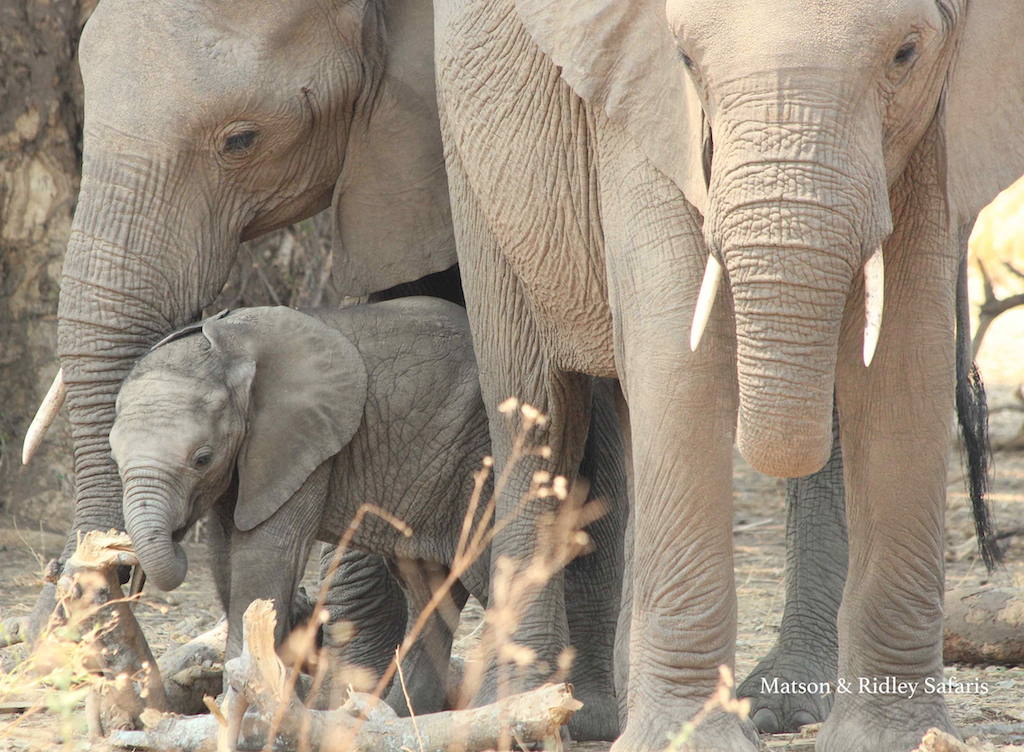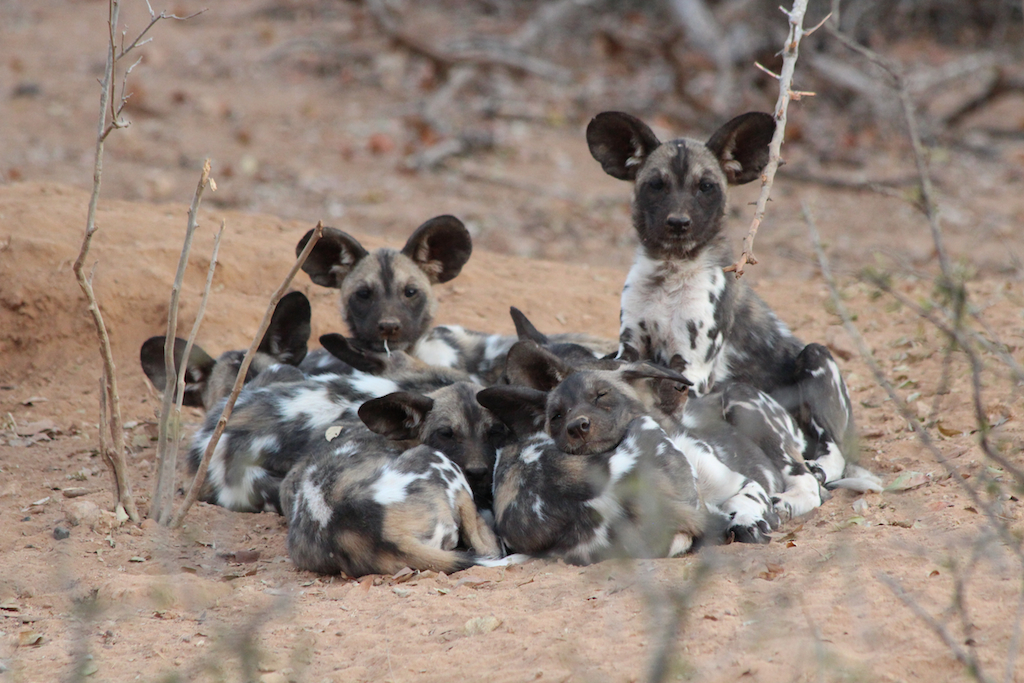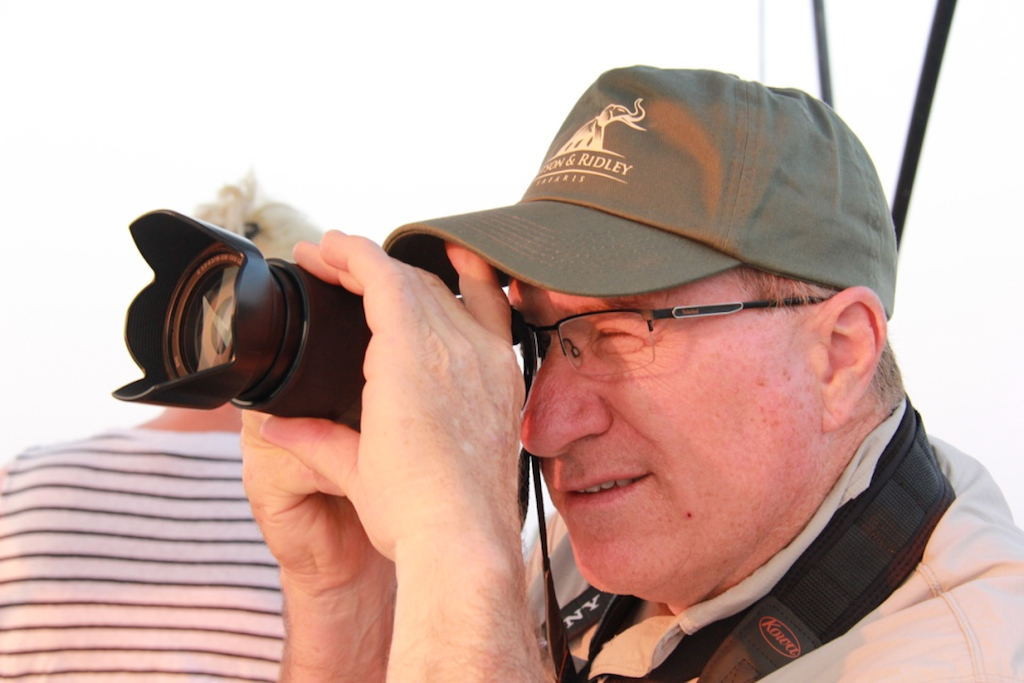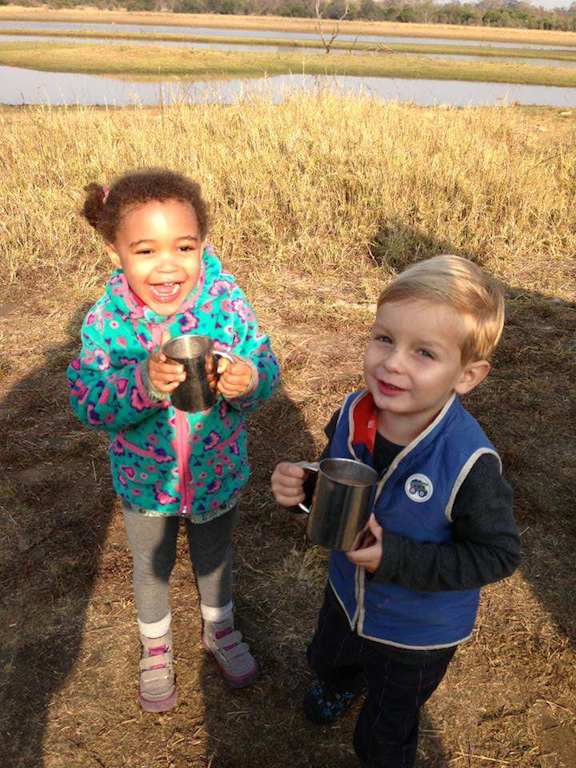When youre sitting around the campfire in Africa having a glass of wine after a day of watching the animal kingdom unfold in all its glory all around you, the conversations are never dull. One of the things I love about Africa is that everyone's learning something new every day, no matter whether youre an investment banker or a medical student or a farmer. So by evening, with all the buzz and excitement of what you've seen in the wild that day, the reflections by the campfire are often very insightful and bring many different perspectives to the table.
When youre out in the bush, you can't help thinking about what we can all learn from animal behaviour and take home to our own lives and work places. When I watch elephant herds, I m always thinking about how they're responding to the matriarch, the great female leader that each herd follows, and the technique she's using to lead them. Elephant society is matriarchal and the value of females does not diminish as they get older, rather it increases with the vast knowledge and experience the old females accumulate and then pass on to the next generation. Grandmas are really important in elephant society, and the matriarch doesn't force her way to rule over the others. She earns her leadership role through earning the respect of the others and they follow her.

A lot of people think impalas are boring but there s much more to them than meets the eye. When I watch impalas mingling with other species, like zebras and warthogs and baboons, I think about how incredible it is that different species will hang out together to take advantage of the greater number of eyes and ears in larger groups. By hanging out with other species that pose no threat, each animal benefits from the greater protection in numbers. The only time impalas don't seek safety in numbers is when a female impala has just given birth. Then she is and her baby are very vulnerable, so they stay on their own away from the conspicuous herd for up to a week. Smart, hey?

And speaking of the value of numbers, how about endangered African wild dogs? When I watch African wild dogs hunting, I m always blown away by their amazing team work. One dog alone wouldn't have a great chance of taking down an impala, but a pack of dogs is formidable. When youre out on safari, youre not just ticking off species that you've seen. Sit still, listen and watch for as long as your patience will allow, and you'll learn so much from the animals.

On the safaris I lead, I always arrange for a local researcher or representative of a conservation group to come and talk to my group about the work going on behind the scenes to keep these wild areas alive. On my last trip to Zimbabwe, we had the guys from the Painted Dog Conservation group join us for lunch, and a representative of Wilderness Safaris, Masters student Arnold Tshipa, came and talked about his work on elephant migrations. It s a rare chance to talk to someone actually working on the ground, so you get more than the average tourist experience.
We all tried to solve the problems of elephant conservation and ivory trade that night over dinner, and one group member couldn't sleep that night because he was so caught up in the dilemma. That's the thing about Africa. It can really suck you in to it s magic, even if youre not an animal person or someone who typically likes to get out into nature. Being out in the bush allows your brain to empty some of its busy-busy-busy and let it refresh a little, enough to let a little reflection happen. And sometimes great ideas come out of times like that.

(Photo credit: Pramila Chanrai)
The main reason I love taking people out into Africa's wild places is that it s not the same as watching a documentary on TV or going to the zoo. When youre in the real wild away from 24 hour news cycles and wifi, it changes you. You can't help but be reminded that we're all a part of nature and as dependent on it for our survival as nature is on us.
We're doing a pretty poor job of conserving the natural world, something that I've been fretting over more than usual since the the US election result last week. But where I see glimmers of hope are in the countries in Africa that have really flourishing tourism industries, like Botswana and Namibia. By giving the wildlife an economic value, you stop them being a pest to local people so you reduce poaching. If the large concessions in parks like Hwange and Mana Pools in Zimbabwe weren't having money plowed into them and jobs provided by companies like Wilderness Safaris, that land would almost certainly be used for other purposes that wouldn't benefit wildlife. Land is precious in Africa, people live on the edge of survival, and so people's needs are core to the conservation of wildlife. In the future, as Africa's population surges, climate change takes its toll making the continent more arid, the pressures on wildlife and people are going to keep increasing. New approaches are going to be needed to keep the last of the elephants and rhinos alive. And one thing's for sure, we need to keep ploughing our support into conservation to keep these wild places intact for our kids.

To join one of my conservation safaris in 2017, drop me a line here. I have 2 spots left on my Tanzania safari to the Ngorogoro and Serengeti regions from 11-17 August 2017 up for grabs due to 2 cancellations. Come and join me and a few like-minded folks for some conversations by the campfire. You won t regret it!
